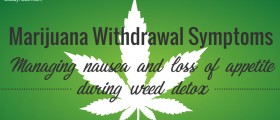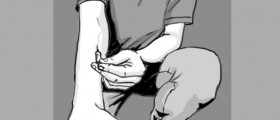
Opiate withdrawal symptoms are unpleasant and hard to deal with. They are not life threatening although people who are deprived from opiates may feel as if they were going through hell. Opiate withdrawal symptoms and sings occur only in people who have been taking opiates for certain period of time and in case there is an addiction to narcotic opioid alkaloids or their semisynthetic chemical derivates.
Psychology and Physical Effects of Opiate Withdrawal Symptoms
In patients who are deprived from opiates withdrawal of these substances cause many psychological as well as physical effects. Many people feel they simply cannot live without the opiate. Cravings for the particular substance makes one feel anxious and irritable. The problem with opiates is that once a person starts using them he/ she develops tolerance and requires higher doses in order to achieve the same effects that were once felt. The degree of tolerance also determines the intensity of withdrawal symptoms.
The most common physical symptoms of opiate withdrawal are muscle aches, insomnia, runny nose, sweating, tearing, abdominal cramps, nausea, vomiting, diarrhea and pupil dilatation. Since many patients suffer from unbearable physical symptoms such as pain they tend to alleviate the pain and all the symptoms with prolonged intake of opiates. This makes opiate withdrawing more difficult.
How to Reduce Opiate Withdrawal Symptoms?
People who are willing to stop or reduce intake of opiates may alleviate withdrawal symptoms by titrating off or slowly weaning oneself off the drug. These methods are highly effective and may provide with return of the body to its normal state and also reduce the risk of severe withdrawal symptoms. The result of such actions is the reduction of shock to the body caused by the withdrawal.
Support for Opiate Withdrawal
It is essential to support people who undergo opiate withdrawal. Patients may benefit from care and attention of their families and friends. Support is essential for coping with temptation and quitting which is common for people who are trying to stop using opiates. There are even support groups for people trying to stop using these substances.
Risk of Opiate Overdoes
It is common that people who have not successfully stopped taking opiates to return to their drug of choice and take too much of the particular substance. This is a common consequence of unsuccessful opiate withdrawal. The explanation of this phenomenon is quite simple. Namely, once the intake of the drug stops the body loses the tolerance to the drug that it used to have when the drug was taken on regular bases. So intake of a dose which used to be well tolerated in people who have had a pause between the intake of the drug can lead to overdose and all the accompanying complications.
















Your thoughts on this
Loading...